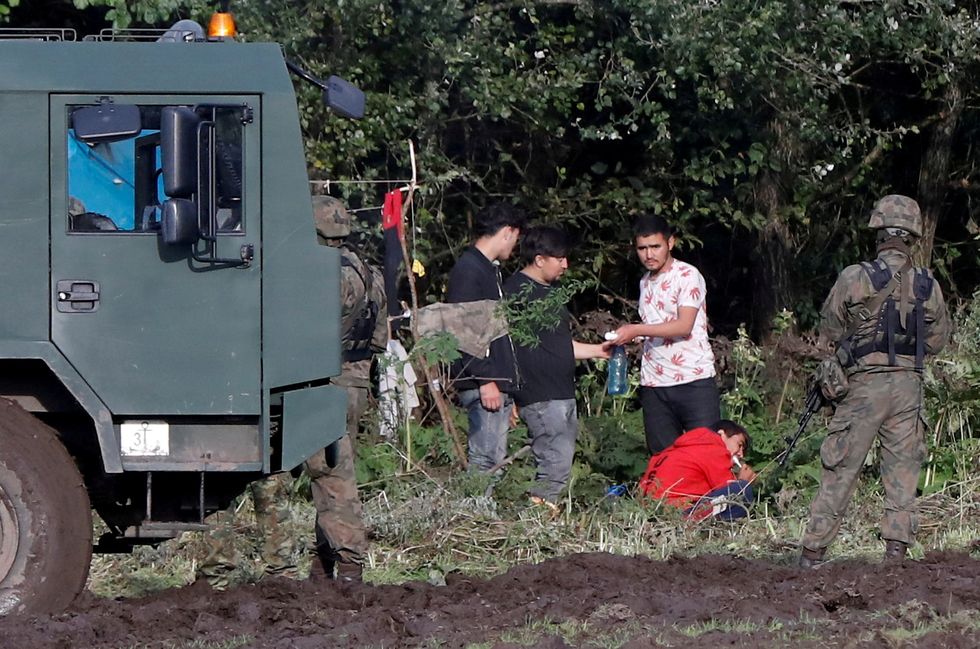Migrants: EU leaders seek to halt crossings from Belarus

Polish border guards stand next to a group of migrants stranded on the frontier between Belarus and Poland near the village of Usnarz Gorny, Poland September 1, 2021.
KACPER PEMPEL










